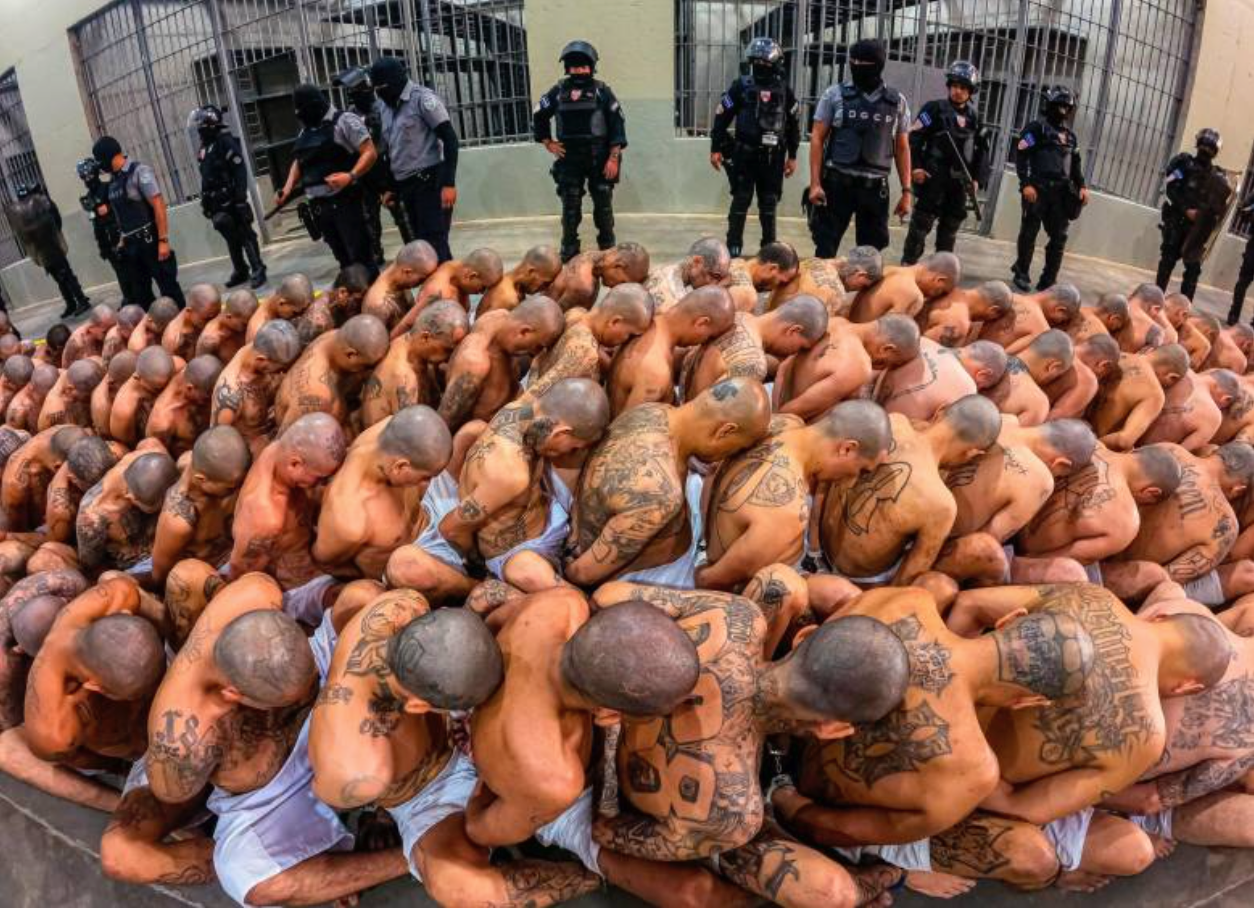On X, Nayib Bukele has described himself as the “CEO of El Salvador,” “the coolest dictator in the world,” or “Philosopher King.” Among his humorous self-descriptions, he could also call himself “ the jailer of El Salvador,” which would be an introduction as ironic as it is literal.
Although in his quest to control the country, Bukele innovates in the exercise of power by resorting to non-traditional means, such as the skillful use of digital platforms, his regime also does not give up the use of conventional mechanisms of domination such as populism, political persecution and, especially, imprisonment.
As in the most ironclad dictatorships, the Salvadoran government uses prison to frighten its opponents. But what is new in the case of the young president is that he has been able to use prison to his personal advantage, thus increasing his popularity and ending political opposition.
Prison as a tool
In 2022, at the end of his third year in office, Nayib Bukele had few management results other than propaganda. El Salvador then (like now) was still a country with relatively high unemployment rates, where poverty was growing and irregular migration did not cease. All this in the context of a situation of decreasing violence, but with the latent threat of gangs.
Contrary to the official narrative, in which the Salvadoran president insists that thanks to his government the country went from being the most violent to the safest in the world, the truth is that he took over a country with a homicide rate that was declining exponentially.
When Bukele took power, with almost 20 deaths per 100,000 inhabitants, it was a far cry from the country of 2016, with 106 deaths per 100,000 inhabitants. El Salvador had achieved the macabre recognition of being the most violent country in the world.
Although the homicide rate during the first years of the Bukele government had epidemic characteristics according to WHO parameters, it reflected a relief from the situation where Salvadorans came from.
Truce to the gangs
In part, the homicides were kept under control thanks to the already well-known truce, documented and recognized by both the press and the U.S. Department of Justice, that the Bukele government maintained with the gangs. This truce was broken at the beginning of 2022, and instead of becoming a crisis, it became an opportunity that Bukele did not let slip away. The president then decided to sacrifice the once powerful gangs, turning them into pawns.
For the ambitious president, breaking the truce meant redefining the gangs as a new enemy to support his political objectives. And prison would be the preferred instrument to achieve this.
A legislative power totally dependent on the Executive facilitated the declaration of a state of emergency on March 27, 2022, which is still in force today. Bukele promised that with this measure he could dismantle the gangs. Society, victim of threats, extortion, disappearances and homicides attributable to these groups, received the government’s offer with relief and hope, even though it meant giving up constitutional guarantees.
The process of mass incarceration began in April 2022. The state’s gunmen promptly followed the president’s order. According to official data, El Salvador imprisoned 80,000 people in two years, which means 70,000 more incarcerations than expected. These 70,000 people are Bukele’s prisoners.
Mass incarceration
Why and what purpose does this mass incarceration serve? Believing that the answer is the president’s benevolence or a strategy planned by his security team may be as naive as it is dangerous.
Even Bukele’s staunchest critics must acknowledge the effectiveness of the Salvadoran regime’s indiscriminate policy of confinement in accelerating the reduction of homicides in the country. There is an inverse positive correlation (-.062; p<.02) between incarceration and the reduction of violent deaths, as well as other crimes such as extortion and disappearances.
Even if it is an improvised decision that responds to the wrong reasons, this is the only tangible achievement that can be attributed to the Bukele government. And it constitutes a terrible (bad) example of what the manifest willingness of Latin Americans to sacrifice democratic freedoms in exchange for greater citizen security means in practice.
The lesson is that, at least in the short term, using repression to satisfy the need for security brings popularity to those in power.
Prison and power
Another function, now more perverse, is to normalize the political behavior of Salvadorans. In “Discipline and Punish,” Michel Foucault (2003) defined the prison as an example of “technology of power,” since it was not a simple place of confinement, but a complex mechanism that sought to transform individuals.
Prison is a power that controls, disciplines and, above all, normalizes. In a country where everything is political, the government threatens to punish those who dare to participate in politics. Along with the homicides, opposition to the Executive has also been reduced. All opposition. Leaders of the Salvadoran left, from which Bukele emerged, have gone in and out of prison (in exchange for community service). Even the capture of former officials and ministers was publicized who, if truly guilty, would still be in prison.
Currently, Ernesto Muyshondt, a politician from the conservative ARENA party who dared to publicly challenge the president, is in prison in cruel and degrading conditions, in a flawed judicial process.
Such imprisonments serve an exemplary function. Even the at least 10,000 innocent people that the government disdainfully calls “ the margin of error ” send a message to citizens: anyone can be subject to jail, without state officials having to be held accountable or give explanations.
Not only is the transgression of the law judged and punished, but the behavior that the Executive expects from its citizens is instructed: to uncritically accept Nayib Bukele and his government.
Without complaining, to the letter
Drunk with power, on the day of his inauguration for his second (and unconstitutional) term, where he arrived with more than 80% of the vote, Bukele demanded of citizens: “Let us take a new oath to defend the decisions we will make in the next five years : we swear to unconditionally defend our national project by following each step to the letter, without complaining […] and we swear to never listen to the enemies of the people.”
Anyone who speaks out and considers himself an “ enemy of the people ” is outside Bukele’s normality and jail is among their possible destinations.
Finally, it is important to recognize that the use of prison requires a discretionary system of justice and a sequestered legislative power, which reveals the absence of independent powers. If prison is an extension of the judicial power and this in turn is an extension of the executive, we are facing a democracy under attack.
Salvadorans must be aware that prisons are not being used as mechanisms to punish crimes or as a means to seek social reintegration. The president uses the penitentiary system to his advantage and it seems that he will continue to do so, turning it into a tool to entrench himself in power.
*Originally published in Diálogo Político.













